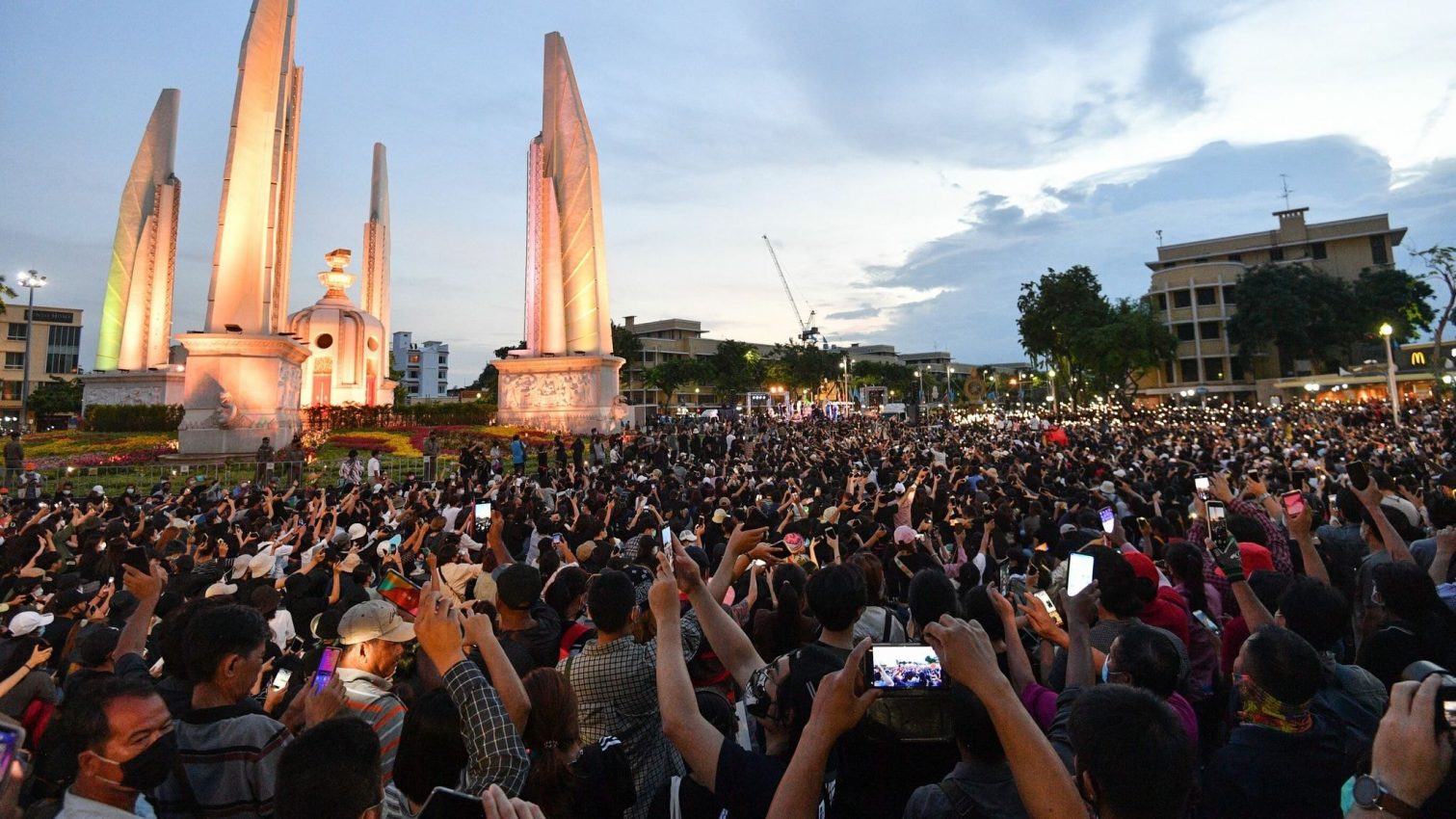
Young Thais are holding anti-monarchy protests in Thailand after King Maha Vajiralongkorn returned from overseas for several royal duties.
On Tuesday, anti-monarchy protesters clashed with police at the Democracy Monument in Bangkok, Thailand and 21 participants were arrested. The anti-monarchy protests in Thailand coincided with the return of King Vajiralongkorn to the royal mansion called Amphorn Sathan Residential Hall.
Clash with police and arrests
Prior to the scuffle with police, the demonstrators partially blocked the road near the monument and set up a barricade. The police then tried to remove this barricade.
When the king's convoy drove past the protesters for the first time, demonstrators chanted "release our friends" and held up the three finger salute from the Hunger Games movies -- a popular symbol of the protests.
According to the deputy police spokesman, Police Colonel Kissana Phathanacharoen, the protesters were arrested for conducting a protest without permission and detained for violating the "Public Assembly Act."
On Wednesday, the demonstrators are planning to convene at the monument and then march to the Prime Minister's office to set up camp. They could potentially come face to face with pro-monarchy groups planning counter protests.
Experts believe that this week would be the turning point for the protest movement, which calls for a new constitution, the dissolution of parliament and resignation of Prime Minister Prayut Chan-o-cha, as well as a stoppage in the government's intimidation of critics.
While protest leaders are expecting a high turnout, some people are questioning whether they were pushing too hard for monarchy reform and whether people are willing to take to the streets amid the pandemic and October rainfall.
Wednesday marks the anniversary of the 1973 mass uprising against military dictatorship and was also the late King's memorial day.
Punchada Sirivunnabood, associate professor of politics at Mahidol University's Faculty of Social Sciences and Humanities, said: "I expect that the government would control this protest very hard."
Panusaya Sithijirawattanakul, a 21-year-old student who stands at the heart of the new student movement, expressed: "It is now or never. The root cause of political problems stemmed from this institution, we couldn't just dance around and ignore it anymore more."
"Otherwise we are going to end up in the same vicious political cycle again. Coups after coups with endorsement from the King," Sithijirawattanakul argued.
Facebook forced to block anti-monarchy group
In August, social media giant Facebook said it was planning legal action in response to the Thai government’s order to block user access to Royalist Marketplace, a group with 1 million members featuring posts about Thailand’s monarchy.
According to Facebook, it was compelled by the Thai government to prevent Thailand users from having access to Royalist Marketplace after it had deemed the content of the group “to be illegal.”
The firm said it was being pressured by the Thai government to restrict some types of political speech in the country, with the government threatening criminal proceedings against its representatives in Thailand.
A spokesperson for the firm issued a statement saying: "Requests like this are severe, contravene international human rights law, and have a chilling effect on people’s ability to express themselves."
"We work to protect and defend the rights of all internet users and are preparing to legally challenge this request," the spokesperson added.
Thailand’s Prime Minister Prayut Chan-o-cha defended the government’s decision to ask for the Royalist Marketplace to be blocked and threatening legal action, saying: "There is no such thing as special dictatorial power used in this case. The court’s order has been properly obtained. Thailand has its own laws and everyone has to respect the laws of each country."






